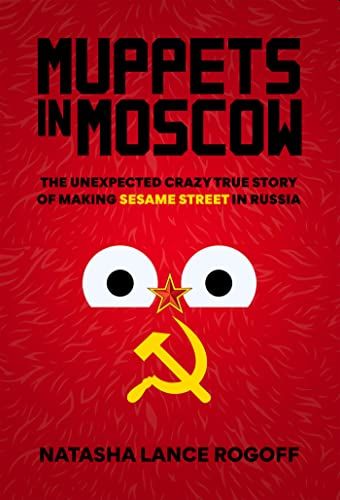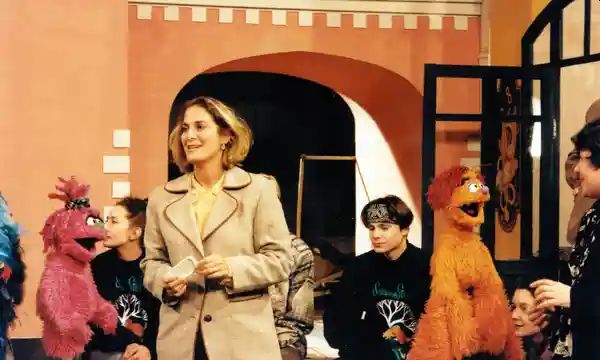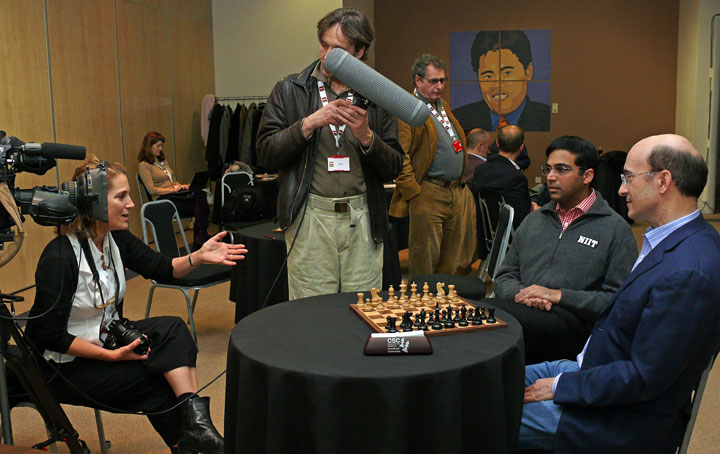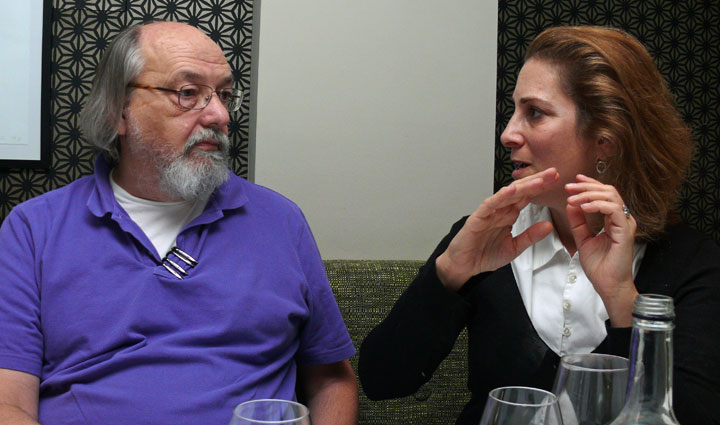.jpeg)

.jpeg)
ChessBase 17 - Mega package - Edition 2024
It is the program of choice for anyone who loves the game and wants to know more about it. Start your personal success story with ChessBase and enjoy the game even more.
Over the years the show has been adapted for many different countries, and became for example Sesamstraße in Germany, Sesam Stasjon in Norway, Sésamo in Brazil, Zhima Jie in China, Sesame Street in Japan, Rechov Sumsum in Israel, Galli Galli Sim Sim in India, Alam Simsim in Egypt, Takalani Sesame in South Africa, and many more. This Wiki page gives you the full list, including names and description of all the characters.
 So how is the show translated and adapted to different languages and cultures? I know how it was done (not spectacularly well) in Germany. Then recently, a friend sent me a book she had just completed, describing the adaptation for Russia, where the show was called Ulitsa Sezam.
So how is the show translated and adapted to different languages and cultures? I know how it was done (not spectacularly well) in Germany. Then recently, a friend sent me a book she had just completed, describing the adaptation for Russia, where the show was called Ulitsa Sezam.
It was a fascinating read. Initially I thought it was too detailed, but I soon found myself flipping back to passages I had skimmed over, to read them more carefully. The book has a large number of B/W pictures that illustrate Natasha's narrative. The e-book version has colour images.
The “unexpected crazy true story” of Ulitsa Sezam is told by Natasha Lance Rogoff, who was an American TV producer working in Moscow. In 1993 she was tasked with converting Sesame Street into Russian. It took four years to complete!

In her book Natasha gives us a vivid description of the cultural clashes she had to deal with in the post-communist era: "the slow rapprochement from preconceived ideas of national identity, putting the emphasis on developing the innate potential of children and building confidence in their own abilities" (Ingrid Friedel, who grabbed the book before me and read it cover to cover).
Muppets in Moscow is nicely described on the jacket:
The Unexpected Crazy True Story of Making Sesame Street in Russia, Natasha Lance Rogoff brings this gripping tale to life. Amidst bombings, assassinations, and a military takeover of the production office, Lance Rogoff and the talented Moscow team of artists, writers, musicians, filmmakers, and puppeteers remained determined to bring laughter, learning, and a new way of seeing the world to children in Russia, Ukraine and across the former Soviet empire. With a sharp wit and compassion for her colleagues, Lance Rogoff observes how cultural clashes colored nearly every aspect of the production—from the show’s educational framework to writing comedy to the new Russian Muppets themselves—despite the team’s common goal.
Brimming with insight and nuance, Muppets in Moscow skillfully explores the post-Soviet societal tensions that continue to thwart the Russian people’s efforts to create a better future for their country. More than just a story of a children’s show, this book provides a valuable perspective of Russia’s people, their culture, and their complicated relationship with the West that remains relevant even today.
If you want to get a feel for what that was like, you can hear it from her in this ABC News video interview. And here is an interview she gave to Politics and Prose:
Googling "Muppets in Moscow" will yield many dozens of rave reviews, and more interviews with the author. There are many places you can buy the hardcover ($22.15 in Amazon) and audiobook.
Ulitsa Sezam went on to become a huge hit, broadcasting across eleven time zones for more than a decade, and well into Putin’s era. It is a remarkable story with a message of hope from the many Russians, Ukrainians, Armenians and Georgians) who collaborated with the small American to create a children’s program that modelled idealistic values of tolerance, kindness and peace.
So how does all this, apart from its general fascination and relevance in the current world situation, connect to chess? Well, Natasha is married to my old friend Ken Rogoff – tip: read chapter 11 on him visiting his fiancé in Moscow, you'll really enjoy it. Ken is a Professor at Harvard University. From 2001-2003, he served as Chief Economist at the International Monetary Fund. Ken is also known for his seminal work on exchange rates and on central bank independence. His monthly syndicated column on global economic issues is published in over 50 countries. He serves on the Economic Advisory Panel of the New York Federal Reserve. He is a member of the Council on Foreign Relations.
Ken is also a very strong chess player. At the height of this chess career, between 1976-1978, he was among the top 70 in the world. He has not been able to abandon his love of the game – in 2010 and in 2011 again he visited the London Chess Classic, and in fact even joined in the live commentary of games. He was accompanied by Natasha, who recorded interviews with top grandmasters in attendance. It was there that I befriended her.

Natasha Lance interviewing Vishy Anand and husband Ken in London in December 2010

Chatting with "the other Ken": Thompson, the inventor of Unix and C
My opinion: buy this book! It will give you a unique insight into modern-day Russia, how people live, think and act, under the pressure of a very harsh system. As Natasha recently said, “Many of the million plus young people are leaving Russia today, because they don’t want to fight and oppose the war. They grew up on Ulitsa Sezam. This is true of many Ukrainian fighters, who are also children of Ulitsa Sezam.”
Thank you, Natasha, for putting this so vividly into historical perspective!
| Advertising |